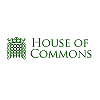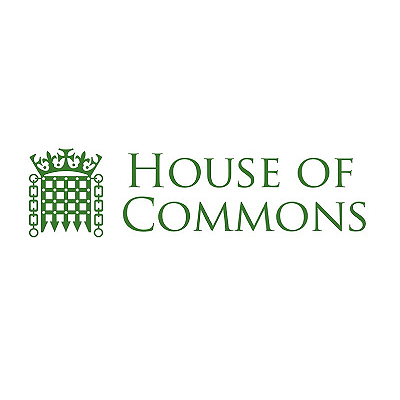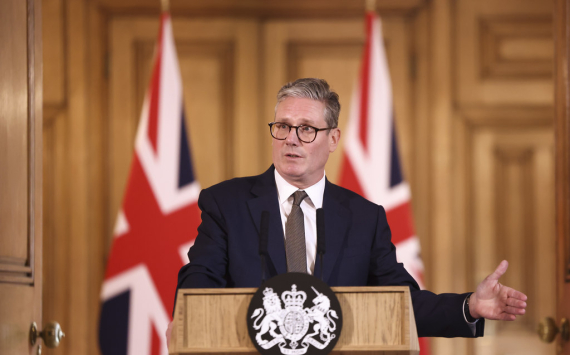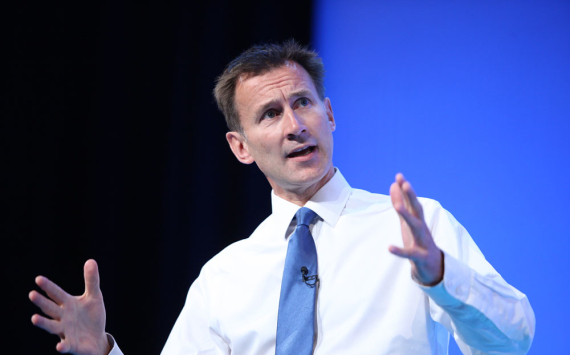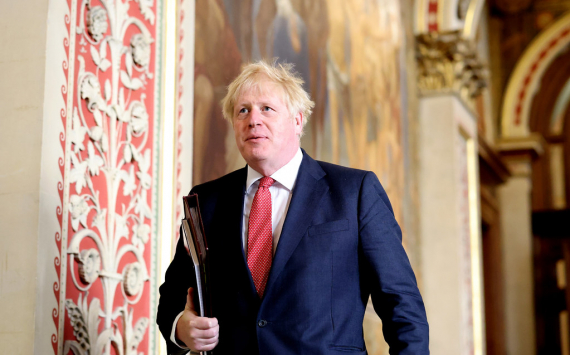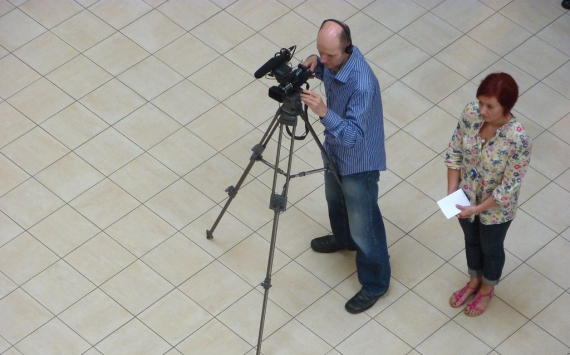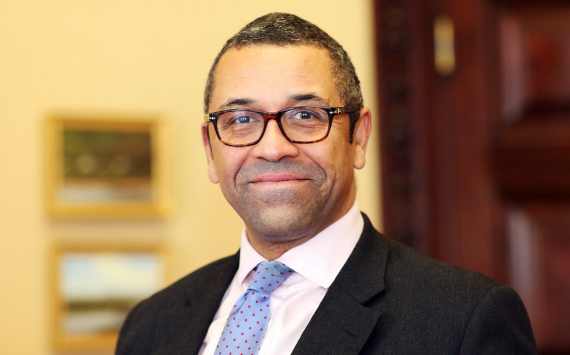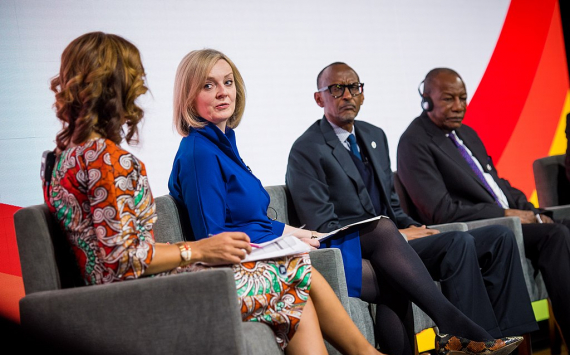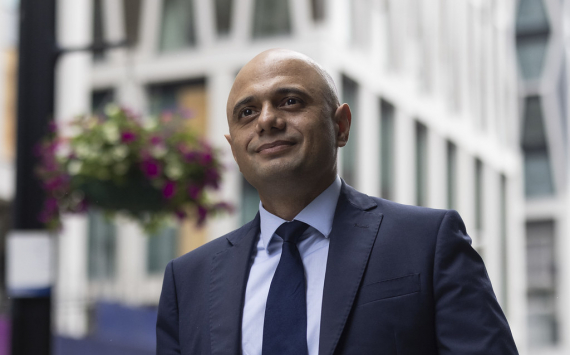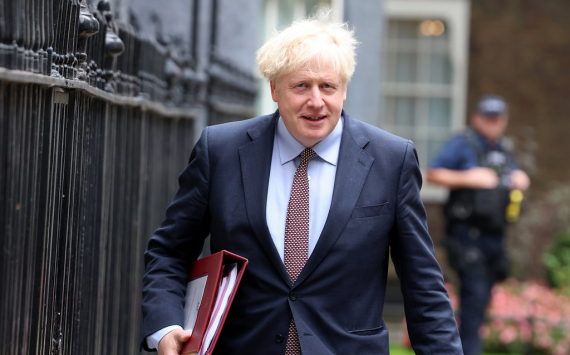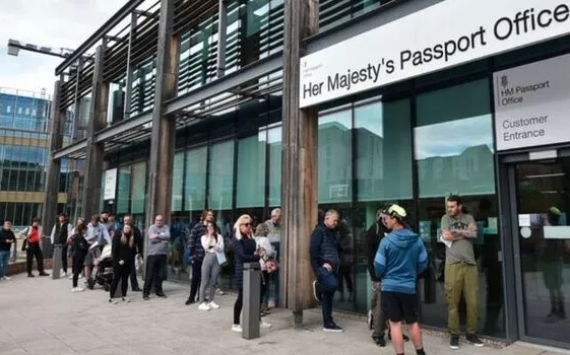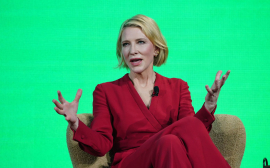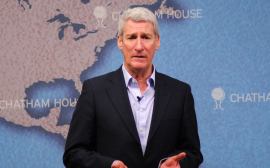Description
The House of Commons is the lower house of the British Parliament.
History of development
Parliament evolved from a council under the king in the Middle Ages. This royal council, which met for a short period, included churchmen, nobles, and shire representatives (known as the "Knights of the Shire"). The main concern of this meeting was the approval of taxes proposed by the crown. Gradually, the council developed into a legislative branch.
Organization of activities
Formation procedure
The formation of the House of Commons is carried out through universal, equal direct elections by secret ballot on the basis of a majority system (English first past the post) of a relative majority in single-mandate constituencies. This means that in order to receive a deputy mandate, a candidate needs to gain a simple majority of votes, while he has the right to be elected in several districts at the same time, and after the election results are announced, if he wins, he must decide which district he will represent in the House of Commons.
Elections to the House of Commons can be general, that is, held simultaneously throughout the country, or intermediate, that is, held additionally in certain constituencies in connection with a vacancy opened as a result of the death or resignation of a deputy.
British parliamentary law contains a number of conditions that determine the inadmissibility of participation in parliamentary elections. So, cannot be members of the House of Commons: 1) foreigners; 2) some officials, in particular - members of the House of Lords; 3) state civil and military employees; 4) persons serving a sentence for high treason; 5) persons suffering from mental illness; 6) bankrupts; 7) persons found guilty of using illegal and dishonest methods at elections.
British citizens who have reached the age of 21, with the exception of those listed above, have passive suffrage. If a person who does not meet the requirements for deputies is elected to the House of Commons, the elections may be invalidated and such a person disqualified, unless the obstacles to taking a seat in the House have been removed by the time of disqualification.
Structure
The number of elected members of the House of Commons corresponds to the number of constituencies, which may change as a result of the revision of their boundaries depending on the size of the population. Currently, according to the results of the last elections in 2017, the parliamentary corps is 650 members. After 2018, it is planned to reduce the number of deputies to 600 members.
Since the House of Commons plays a major role in the implementation of the functions of parliament, its deputies are commonly referred to as “Members of Parliament” (abbreviated as MPs).
Members of Parliament cannot be simultaneously elected to the House of Lords, but they can be part of the government, which is formed on the proposal of the Prime Minister. Formally, the parliament does not participate in the appointment of the prime minister - this is the prerogative of the monarch. In practice, the monarch can only appoint as head of government a member of the party that has a majority in parliament, since, in accordance with constitutional custom, the leader of the party with the majority of mandates in the House of Commons becomes prime minister.
Term of office
The term of office of the House of Commons is 5 years. However, until 2011, the Prime Minister had the right at any time to appeal to the monarch with a request to call early elections. For example, if the parliament did not support a certain government law, the Prime Minister could demand the appointment of early elections in order to present this bill to the new parliamentary composition. Of course, if the voters' preferences changed after the elections, the Prime Minister could change.
In 2011, the Parliament adopted the “Act on the Fixed Term of the Parliament”. In accordance with this act, early elections can be appointed only in the following cases:
- If at least 2/3 of the total composition of parliament (including vacancies) votes for early elections;
- Parliament will vote on a decision to express no confidence in the UK government, and within 14 days after that, the same or another government will not receive a vote of confidence.
Parliament dissolves 17 days before election day. Thus, during the election campaign, the deputies retain their powers and the country does not remain without government.
Structure
Officials
Speaker
The President of the House of Commons is the Speaker. He is elected from among the oldest and most respected of its members at the beginning of the work of the parliament of a new convocation or when a corresponding vacancy arises. The speaker's candidacy must be approved by the leaders of the political parties represented in the House and approved by the monarch. If the speaker retains the seat of a deputy after the next parliamentary elections, then the deputies will re-elect him for a new term. Thus, the speaker continues to remain in office until he loses his parliamentary mandate, or resigns on his own initiative. At the end of his term, the speaker traditionally receives the title of baron and membership in the House of Lords.
The main task of the speaker is, firstly, to ensure the interaction of the House of Commons with the monarch, government and other institutions of power, and secondly, to exercise the organizational leadership of the House. Thus, the speaker determines the order of speech of the deputies and makes sure that they speak on the merits of the issue, controls the course of the debate and applies disciplinary measures to violators of the order; selects the committee that will work on the draft law and appoints its chairman; determines whether the bill is financial and decides to hold a committee meeting of the entire chamber; confirms the overcoming of the veto of the House of Lords, etc. Thus, the speaker plays an important role in the work of parliament. Taking this into account, and also in order to prevent advantages for the party to which the speaker belongs, immediately after the election, he formally leaves its composition. To prevent the speaker from putting pressure on the deputies during the debates, he, like his deputies, is not given the right to speak at sessions of the chamber and participate in voting. An exception is the case when the votes of the deputies are divided equally. At the same time, even in this case, the speaker is obliged to vote in accordance with the following principles: whenever possible, vote for the continuation of the discussion, not create with his vote a majority for changing the "status quo" (that is, the speaker will vote against the adoption of the law, but support the adoption of the bill in the first or second reading - as this allows the discussion to continue).
From 2009 to 2019, John Berkow was the Speaker of the House. On November 4, 2019, Lindsay Hoyle was elected as his successor.
Vice Speaker
The speaker has three deputies (Deputy Speakers), who are also considered non-partisan parliamentarians and do not vote under normal conditions. The first deputy speaker is called the Chairman of Ways and Means. He replaces the speaker in his absence and presides over meetings in the event that the House of Commons is transformed into a Committee of the entire House.
Leader
The leader of the House of Commons is a member of the Cabinet of Ministers. Under the 1978 House of Commons Act, he is appointed by the monarch on the proposal of the prime minister from among the most influential members of the ruling party. The main function of the leader is to represent the government in the chamber. He has such important powers as setting the agenda and the program of legislative measures.
Since June 2017, the position was held by Andrea Leeds, but on May 22, 2019 she announced her retirement.
The new leader of the House from July 24, 2019 is Jacob Rees-Mogg.
Clerk
The clerk of the House of Commons is both the Chief Procedural Adviser of the House and the Chief Executive of the House. This is a permanent position, and he is not a member of the House of Commons. The clerk advises the speaker, signs orders and official statements, and signs and seals the bill. He is the head of the Board of Management, which consists of the heads of the six departments of the chamber. The assistant to the clerk is called the assistant. Another official is the bailiff, whose duty is to maintain law, order and security in the chamber. The Sergeant-at-Arms wears a ceremonial mace, a symbol of the authority of the crown and chamber. The mace is placed on the table before the meeting.
Committees
The House of Commons includes general, special and joint committees, as well as a committee of the entire house.
General committees
General committees are formed for the article-by-article consideration of draft laws - bills, both public (English public bill committees) and private (English private bill committees). To consider each specific bill, a separate committee is created, which is dissolved after the completion of its task. Several general committees can function simultaneously in the chamber, numbering from 16 to 50 members, the number of which is proportional to the party factions. Generally, the general committees consider the most diverse in their direction bills, however, some of them are oriented in a certain way (English additional general committees), for example, the Greater Scottish, Greater Wales, Greater Northern Ireland and other committees.
Special committees
Special committees (eng. Select committees) are created at the beginning of the parliament of the new convocation and have from 11 to 17 members. A special place among them is occupied by the committees for the control of government activities (English departmental select committees). First created in 1979, they are formed by industry. Their main task is to control the activities of ministers, and therefore the system of these committees is tied to the structure of the government. Government members are not entitled to serve on such committees, but may attend meetings and speak on behalf of the government without voting. Members of the House of Commons who are not members of the relevant committee are also entitled to attend its meetings, but without the right to vote. Ad hoc committees also include topical select committees, in particular the European Union Affairs Committee, as well as internal select committees that ensure the functioning of the chamber, including the Selection Committee, the Committee on procedure, etc.
Joint committees
Joint committees, formed from an equal number of members of the House of Commons and members of the House of Lords, are created to consider issues concerning both houses of parliament. Some of them function on a permanent basis (English major joint committees), for example, the Human Rights Committee, the Delegated Legislation Committee. A distinctive feature of the joint committees is that, firstly, the chairman - he can be a member of any of their chambers - is appointed by the committee itself, and secondly, the committee submits a report on its work to both chambers.
House-wide committee
The Committee of the Whole House is a special committee that includes the entire House of Commons. As a rule, the Chairman of the Committee is the First Deputy Speaker. A committee of the entire chamber meets to consider only the most important, including financial bills. Holding a meeting in this format allows all members of parliament to participate in the article-by-article consideration of the most important draft laws according to a simplified procedure designed for the work of committees. After the end of the committee of the entire chamber, parliament considers the bill in the same way as after the normal consideration of any of the committees.
Political parties
The political structure of the House of Commons is as follows:
Party Number of seats
Conservative Party 364
Labor 200
Scottish National Party 47
Liberal Democratic Party 11
Democratic Unionist Party 8
Sinn Fein 7
Independent 5
Plyde Camry 3
Social Democratic and Labor Party 2
Alliance (Northern Ireland) 1
Green Party of England and Wales 1
Speaker 1
Sinn Fein MPs did not take the MP oath and did not take up their duties in parliament. Thus, they protest against the fact that part of Ireland remains part of the UK.

